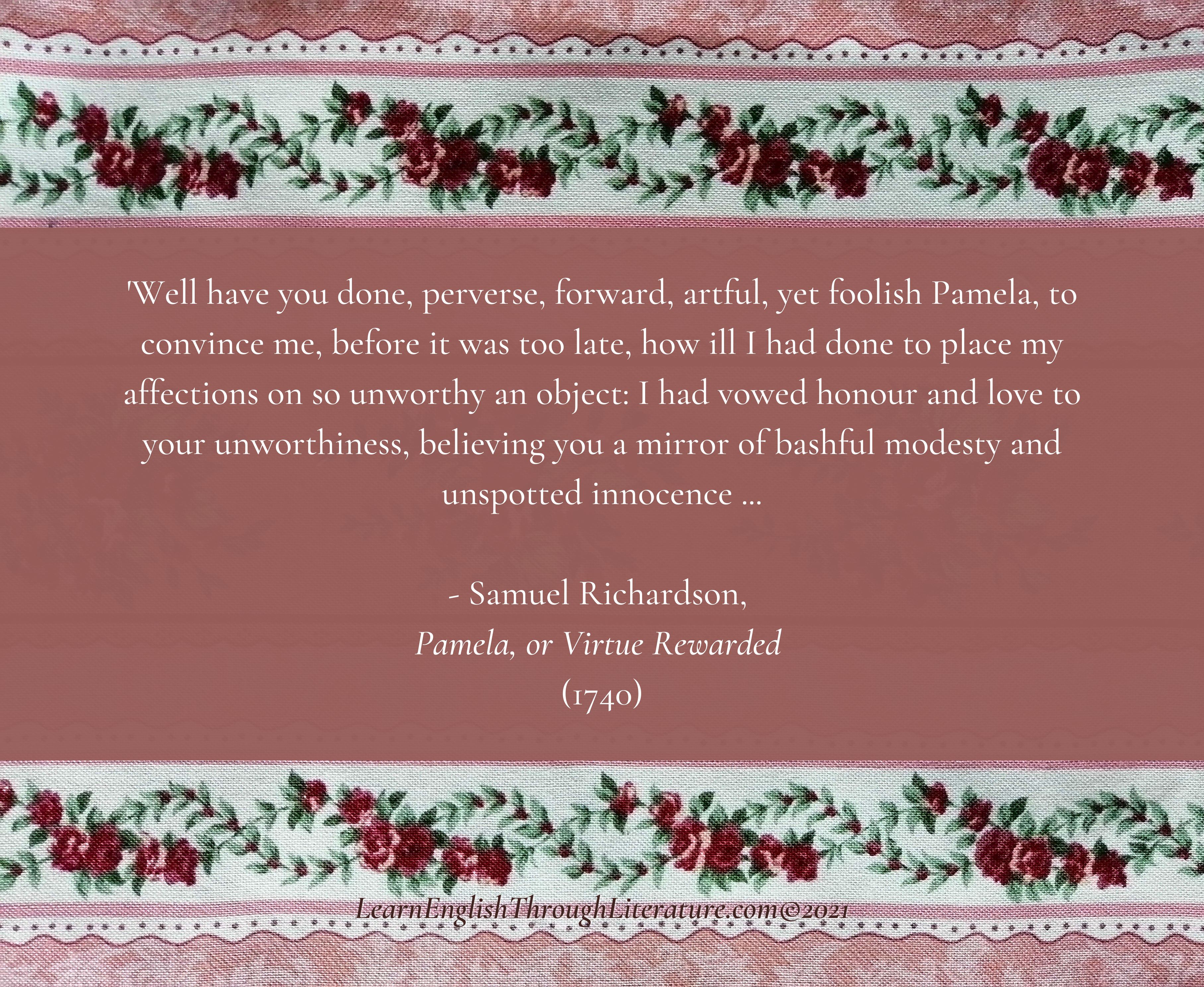📙 ‘I hope I shall always behave so as to be respected by every one; and that nobody would do me more hurt than I am sure I would do them.’
– Samuel Richardson, Pamela, or Virtue Rewarded (1740)
In Part 2 of our Lesson, we continue to differentiate the differences between similar-looking words like ‘always vs alway’ and ‘forwards vs forward’, considering what mean and how they can be used. (If you haven’t already read it, you might like to check Part 1 here where we looked at the differences between ‘besides vs beside’).
…
📝 ALWAYS VS ALWAY
Both of these words are very closely related and both are adverbs. Generally speaking, they refer to an action that is happening ‘forever’ or ‘continually’.
Always
This is the one we are most familiar with, since most English speakers will use it very often, indeed daily.
It means ‘at all times’ or ‘continually’:
📙 “There, sir, said she; you always said Mrs. Pamela was a great writer …”
– Samuel Richardson, Pamela, or Virtue Rewarded
📙 ‘So, though I don’t know whether ever you’ll see what I write, I must say, that I will go to bed, with remembering you in my prayers, as I always do, and as I know you do me: And so, my dear parents, good night.’
– Samuel Richardson, Pamela, or Virtue Rewarded
..
Alway
‘Alway’ is an archaic (old-fashioned) word that means ‘all along’ or ‘for all time’. It has a stronger sense of time or eternity in it (contrasted against the ‘continually here and now’ sense found in ‘always’).
Richardson includes it in his writing as follows:
📙 ‘… praise ye the Lord our God; Praise ye the Lord alway.’
– Samuel Richardson, Pamela, or Virtue Rewarded
…
📝 FORWARDS VS FORWARD
Important note: Even though there is a distinction between these two words (as we will see here), in American English both words are spelled the same: forward, without the ‘s’. 🇺🇲
However, I will include ‘forwards’ with an ‘s’ here, because it is easier to illustrate the differences between these two words (and since I, and most English-speaking Europeans, use British English spelling). 🇬🇧
Forwards
This is an adverb meaning ‘towards the front’ or ‘towards a place, space, or time that is ahead or in advance.’
📙 ‘And, added he, since that horse will serve you, Mr. Andrews, to ride backwards and forwards, to see us, when we go into Bedfordshire, I make you a present of it, with the accoutrements.’
– Samuel Richardson, Pamela, or Virtue Rewarded [‘accoutrements’ means ‘additional items of dress or equipment’]
..
Forward
‘Forward’, as distinct from ‘forwards’ (see note above on American vs British spelling) is mostly found as an adjective or a verb.
As a verb it is fairly straightforward, meaning to ‘send forward’ or ‘send on ahead to …’
e.g., ‘Shall I forward his email to you?’ – in other words: shall I send on to you the email that I received from him?
‘Forward’ as an adjective means ‘straightforward, confident, and forceful, sometimes appearing rude or inconsiderate of social rules’. It can have a negative connotation.
📙 ‘I may not deserve, in your opinion, the opprobrious terms of forward and artful, and such like …’
– Samuel Richardson, Pamela, or Virtue Rewarded [‘opprobious’ means ‘hateful’ – Pamela is defending herself here]
📙 ‘… as he was then pleased to speak his mind, no doubt, I would not, for any thing, seem too forward.’
– Samuel Richardson, Pamela, or Virtue Rewarded [‘seem’ here means ‘appear’ – Pamela doesn’t want to appear too forward for any reason]
..
✍️ NOTE: You may have heard the common expression in English, ‘look forward to’, meaning ‘to be excited about something that is going to happen in the future’ – e.g., ‘I am looking forward to meeting my friends in the holidays’. It is a fixed expression with ‘forward’ (adverb) always being written without an ‘s’, both in American and in British English. 🇬🇧 🇺🇲
📙 ‘… I hope we shall be so happy as to be enabled to look forward, with comfort, to another, where our pleasures will be everlasting.’
– Samuel Richardson, Pamela, or Virtue Rewarded
…
Has this been helpful? Feel free to let me know (through the contact form on the Home page) if you have other questions or think that a personalised lesson on any English language topic would be useful for you (it doesn’t have to be a question on English literature!) 📚




